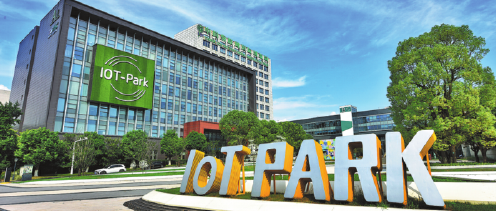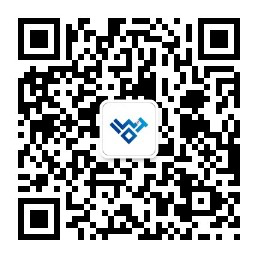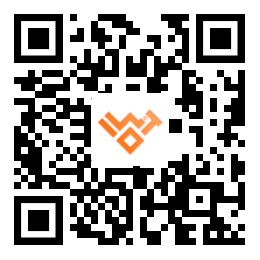Industry creates a buzz for region

The China IoT International Innovation Park in Wuxi. CHINA DAILY
Wuxi is hosting the 2023 World Internet of Things Exposition from today to Monday, and reporters from more than 20 media outlets nationwide recently visited the city to gain insights into the achievements it has made in developing the IoT.
Among the companies they visited is Wuxi Zhongke Dexin Sensing Technology. Founded in 2020, the company's focus is on infrared photoelectric sensing equipment and the commercialization and industrialization of related technologies.
Its typical products target domestic and foreign advanced equipment manufacturing and can be used in diverse fields such as industrial inspection, medical imaging, security monitoring, forest fire prevention, cultural relics identification and space remote sensing.
The visiting reporters also learned about the multifunctional application of sensors in water resources management at Smart Drive Sensing, which specializes in intelligent drainage, water resources perception, and irrigation area informatization.
The company's products, including radar-related water level gauges and flow meters, are widely used in intelligent drainage systems and irrigation area informatization projects in regions such as the Yangtze River Delta and Pearl River Delta. Used for smart water resources management, they have also been applied in the hydrologic real-time monitoring of the Wenzhou dragon boat sports center during the Hangzhou Asian Games, providing support for the event.
The Wuxi branch of SAIC Maxus showed the visiting reporters its production line that adopts numerous industrial robots and automatic handling equipment. The SAIC Maxus Wuxi factory can support synchronous production of more than 200 vehicle types on six platforms, ranging from multi-purpose vehicles to sport utility vehicles and pickups. It was given the title "Wuxi city's smart factory" in 2021.
In Wuxi, the IoT industry is a large cluster. In 2022, the city's core IoT industry achieved an operating revenue of 93.45 billion yuan ($12.78 billion). Currently, there are more than 3,000 enterprises in the city's industry chain, with over 200,000 employees.
Zhang Fan, the director of the IoT industry development department at the Wuxi industry and information technology bureau, said that Wuxi is seeking to fully grasp new growth opportunities, and it aims to comprehensively enhance the industrial foundation for the IoT industry and modernize the industry chain to create a world-class advanced manufacturing cluster.
The Wuxi factory of Schneider Electric received an order for 150 customized light control products recently, to be shipped in seven days. At that time, its working production lines were fully booked. It spent four hours assembling a new one that finished the order in two days.
That achievement cannot be separated from the empowerment of IoT technology, according to the company. Shi Yong, production manager at the factory, said that with the Wuxi bureau's help, the factory is cooperating with the Wuxi branch of China Mobile to develop 5G IoT software and hardware, which aids in cost reduction and quality improvement.
Examples of IoT being used to empower manufacturing are many in Wuxi. A shield machine working in a tunnel in Zhuhai, Guangdong province, is equipped with a data collection box containing hundreds of sensors, which collect data more than 1,000 times per second.
Guo Qiao, senior vice-president of Wuxi-based Xuelangyun, said that the massive raw data transmitted by the sensors are difficult to use directly. Based on the Xuelangyun industrial internet platform, the data can be processed and then "translated" into a language understandable by the construction personnel. This platform has been applied in 22 manufacturing categories, including aerospace, automobiles, and equipment manufacturing, by more than 100 enterprises.



